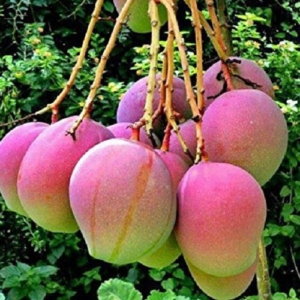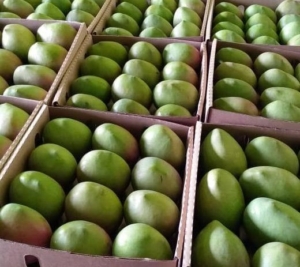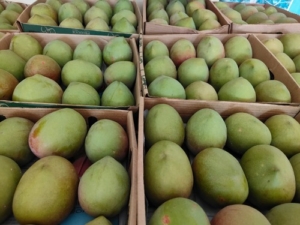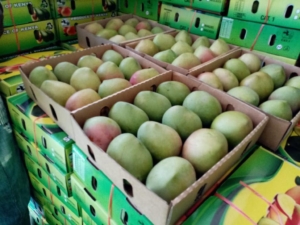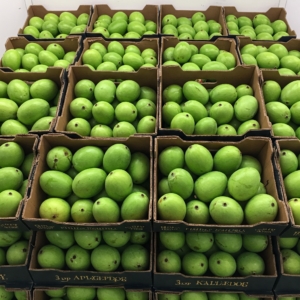Kent Mango Exporters to Berlin Distributor
At Mulberry Growers, we are dedicated to delivering the finest fresh herbs and fruits directly to businesses like yours, with a particular focus on Kent Mango Exporters to Berlin Distributors. Our efficient logistics and agile response to market demands set us apart, ensuring reliable and prompt delivery for our clients. With extensive experience in the industry, Mulberry Growers is the preferred partner for those looking for exceptional quality and consistency.
Unmatched Freshness and Consistency from Kent Mango Exporters to Berlin Distributors
When it comes to delivering fresh produce, nothing beats the reliability that Mulberry Growers offers as Kent Mango Exporters to Berlin Distributors. By controlling our own farms, we guarantee superior product quality and the ability to maintain tight control over growing conditions. With our established supply channels, businesses can rest assured that our products meet high standards of freshness and consistency, ready for fast delivery to meet demand in Berlin.
How Does Mulberry Growers Ensure Timely Deliveries to Berlin Distributors?
One of the standout advantages of working with Kent Mango Exporters to Berlin Distributors is our proven track record in ensuring timely and efficient deliveries. By maintaining strong logistical networks and closely monitoring transportation schedules, Mulberry Growers ensures that your goods reach their destination without delay. Businesses can count on us to deliver fresh produce with promptness, avoiding any disruptions in supply chains. Every step is planned to meet the needs of distributors and large-scale retailers in Berlin.
The Power of Agile Response: Meeting Market Demands Efficiently
In a fast-paced market, having an agile response is crucial. As Kent Mango Exporters to Berlin Distributors, Mulberry Growers is known for its ability to quickly adapt to the fluctuating needs of our clients. Whether it’s scaling up supply to meet an unexpected surge in demand or adjusting to seasonal shifts, we prioritize speed and flexibility. This approach ensures that businesses always have access to the fresh produce they need without unnecessary delays, helping them stay competitive in the marketplace.
Why Should Distributors Rely on Mulberry Growers for Importing Fresh Produce?
With Mulberry Growers handling the export process, Kent Mango Exporters to Berlin Distributors can trust us for a hassle-free supply of fresh, high-quality products. We handle every detail of the import process from our farms to the final destination, ensuring your produce arrives in optimal condition. With an emphasis on reliable shipping and product handling, businesses can feel confident that the freshness of their imported produce will be maintained throughout the journey.
The Strategic Importance of Supply Chain Efficiency for Fresh Produce
Mulberry Growers offers Kent Mango Exporters to Berlin Distributors a competitive edge through a highly efficient and streamlined supply chain. From initial harvest to final delivery, every phase of the supply chain is optimized for minimal delays and maximum freshness. By maintaining oversight and tight control over transportation logistics, we are able to provide businesses with precise and consistent transit times, reducing the risk of spoilage and ensuring products are delivered at peak freshness.
How Do Mulberry Growers Maintain Freshness from Farm to Berlin?
Mulberry Growers excels in maintaining the freshness of produce throughout its journey as Kent Mango Exporters to Berlin Distributors. We achieve this by leveraging our own farms and controlling the growing environment, ensuring that the produce reaches Berlin in top condition. Through our in-house logistics team, we monitor each stage of the process, from packing to transport, making sure that products maintain their shelf life and freshness during transit. This ensures that businesses receive fresh produce that meets their specific needs.
Efficient Export Documentation and Reporting for Timely Customs Clearance
Kent Mango Exporters to Berlin Distributors benefit from Mulberry Growers’ streamlined export documentation and accurate reporting. By maintaining strict records and ensuring precise communication, we facilitate smooth customs clearance and avoid delays. Importers and wholesalers alike can rest easy knowing that all necessary paperwork, including certificates and inspection reports, is in order. With reliable reporting, businesses are able to plan their operations with confidence, ensuring their shipments clear customs quickly and efficiently.
Maximizing Efficiency with Low Minimum Order Quantities
Kent Mango Exporters to Berlin Distributors appreciate the flexibility offered by Mulberry Growers’ low minimum order quantities. By adjusting to the specific needs of large-scale buyers, we offer the ability to place orders without overcommitting to large volumes. This flexibility allows businesses to tailor their orders to demand fluctuations while still receiving the fresh produce they need. Mulberry Growers’ commitment to adaptability in supply ensures that distributors can maintain an efficient, cost-effective stock of fresh goods at all times.
Ready to Work with Mulberry Growers?
Are you looking for fresh produce that meets the high standards your business demands? Request a quotation today or make inquiries via our Mulberry Growers consultation page for Kent Mango Exporters to Berlin Distributors. Our team is ready to help you source top-quality fresh produce tailored to your needs.
- Email: commercial@mulberrygrowers.com
- Call/WhatsApp: +254 716 150 111 OR +254 748 897 749
- Website: www.mulberrygrowers.com
